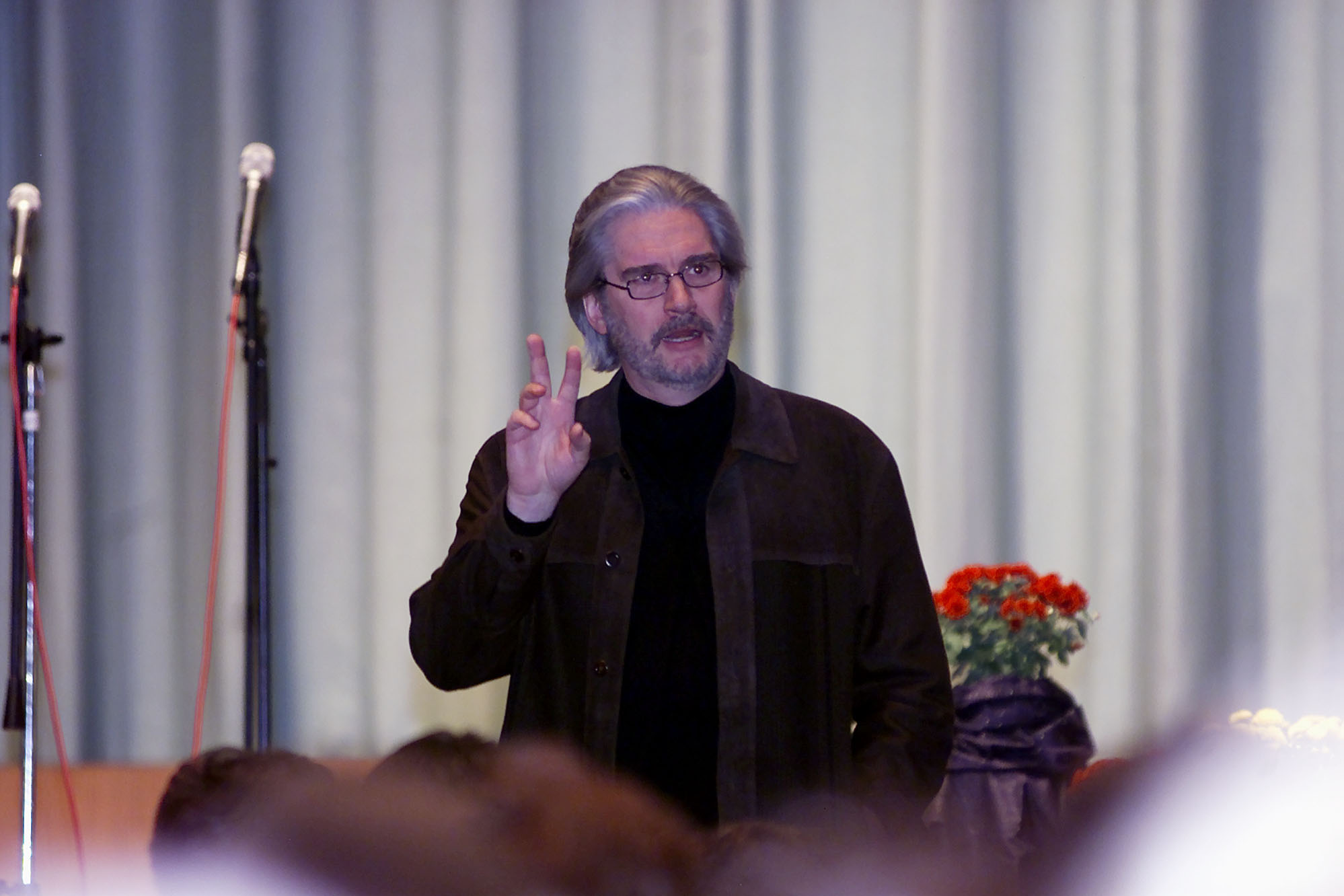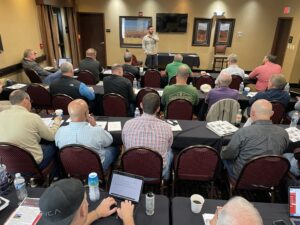
NASHVILLE, Tenn. (BP)–“The thing that makes Len Sweet tick is that I’m crazy in love with Jesus and I think it’s your job and mine to help a whole new generation to say the same thing,” Leonard Sweet told 750 workers at the National Preschool-Children’s Convention.
He compared the challenge of adults born before 1962 sharing Christ with people born after that year to immigrants trying to communicate with natives. The author, speaker and E. Stanley Jones professor at Drew University in New York, spoke Oct. 16 at LifeWay Christian Resources of the Southern Baptist Convention in Nashville, Tenn.
He called people born after 1962, “A.C.” (after computers) and natives to today’s culture. Those born before 1962 are “B.C.” (before computers) and immigrants.
“It’s time we went native,” Sweet said. “How can we reach them without imposing our immigrant ways?”
Emphasizing the content of the gospel must remain the same, he challenged ministers to step outside traditional thinking to consider new containers for the message.
Sweet outlined a four-step transformation process he called EPIC to enable the B.C. generation to communicate with A.C. natives.
First, he said older adults must move beyond rational thinking about faith to focus on a relationship with Christ.
“Immigrants have made Christianity a set of principles,” Sweet said. “The essence of the Christian life is introducing people to a relationship. This culture is not looking for something to believe in. Their hunger is for the experience of a relationship with God.”
The second step of EPIC, Sweet said, requires older adults to move from a performance-based mode of thinking and doing to a participatory, interactive model.
Media outlets that understand this process are incorporating call-in segments and Internet dialogue into news programming, he said.
“Ministry in the 21st century is more like ministry in the first century than ministry in the 20th century,” he said.
Third, Sweet said, natives respond to the gospel when it is presented in images rather than words.
“How exciting to present Jesus, who is the image of God, to an image-based culture,” he said. “These natives live and die by image. We must give them the right image through which to prepare for eternity.”
Finally, Sweet said older adults must move from an individual to a connective approach to reach younger generations.
“The essence of connectivity is, ‘I can’t be me without we,'” he said.
Sweet, a former college president, said he experienced a major turnaround in 1987 when he moved from being a learned academic talking to other academics to become a learner.
“Stop being learned people and become learners together,” he urged.
He cited three changes in civilization in the lifetimes of younger generations that set them apart and create challenges for older adults in bridging the communications gap.
First, he said, today “one person can have the power that one government or general could have in the past. The power of one has never been greater.
“How can you not believe me after 9/11? Osama bin Laden understood this almost before anyone,” he noted.
Also, with the Internet, “we now have generations who do not need authority figures to access information,” Sweet said.
However, “I could argue these generations, more than ever, need authority figures to process and assess information,” he said.
Finally, he said, adults need to understand and accept that today’s younger generations are authority figures in some areas.” He cited computer technology as one example.
“Our kids have the skills and some of the savvy we are going to need to survive in the future,” Sweet said.
“We have a whole new generation with a whole different learning style and it is time for us to change our teaching methods to fit their learning style,” he said.
–30–
A photo to accompany this story is posted in the BP Photos Library.
















